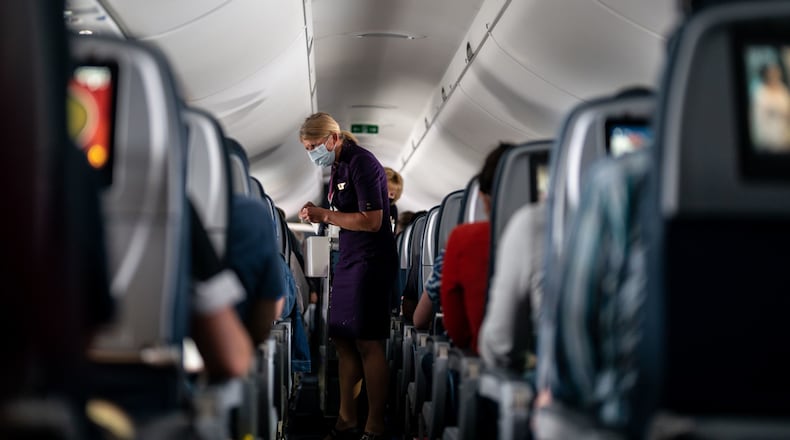Delta Air Lines passengers who like to queue at the gate once boarding begins might want to head to the airport a bit earlier.
Atlanta-based Delta said this week it will start boarding many of its domestic flights earlier to allow more time for passengers to filter onto planes in a bid to improve on-time performance. Starting June 2, Delta will increase the time allowed for boarding single-aisle, narrow-body planes to 40 minutes from 35 minutes.
The boarding time adjustment is one of a series of changes Delta is making to improve its operational reliability. Allowing more time to board planes can help flights to arrive on time, allowing passengers to make their connections and planes and crews to be in place for their next flights.
The airline is also testing ways to incentivize customers to check their carry-on bags to speed boarding, and allowing flights to depart early when ready.
This boarding shift also comes with a change in how the carrier pays its flight attendants, at a time when Delta is again fending off unionization efforts among cabin crew. Delta will take the unusual step of paying flight attendants for work during boarding time, rather than paying them for flight time only after the aircraft door closes, as is typical in the airline industry.
Operational reliability is “more important than ever,” Kristen Manion Taylor, Delta senior vice president of in-flight service, said in a memo to flight attendants. Delta already allows extra time for boarding larger aircraft, with domestic wide-body planes at 45 minutes and trans-oceanic aircraft at 50 minutes.
Demand for travel has rebounded from earlier in the pandemic, but airlines have been struggling with staff shortages and flight cancellations.
Delta is adding the boarding pay for crews as the Association of Flight Attendants seeks to organize workers at Delta.
Delta management knew “that changing domestic boarding time from 35 to 40 minutes without adding a benefit would create an uproar,” as a test of the system in October in Atlanta did, the Association of Flight Attendants union said on its website. The union added that “our organizing is pushing management to do more than they would have without being challenged.”
The airline said its “industry leading boarding pay component” is a response to feedback from flight attendants and the company’s “employee involvement group” of flight attendant representatives. Delta also announced 4% pay raises in March.
Taylor told flight attendants the new boarding pay is an “industry first” that “further recognizes how important your role is on board to ensuring a welcoming, safe and on-time start to each flight and for each customer.
About the Author
The Latest
Featured


